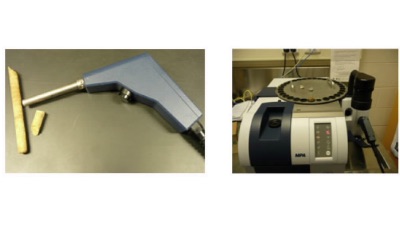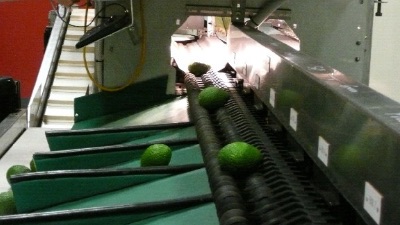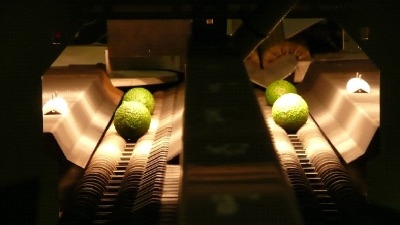Rapid Assessment Unit Technology, Products & Services
Technology, Products & Services
- Future Students
- JCU Global Experience
- International Students
- Open Day
- How to apply
- Pathways to university
- Virtual Open Day
- Living on Campus
- Courses
- Publications
- Scholarships
- Parents and Partners
- JCU Heroes Programs
- Aboriginal and Torres Strait Islander in Marine Science
- Elite Athletes
- Defence
- Current Students
- New students
- JCU Orientation
- LearnJCU
- Placements
- CEE
- Unicare Centre and Unicampus Kids
- Graduation
- Off-Campus Students
- JCU Job Ready
- Safety and Wellbeing
- JCU Prizes
- Professional Experience Placement
- Employability Edge
- Art of Academic Writing
- Art of Academic Editing
- Careers and Employability
- Student Equity and Wellbeing
- Career Ready Plan
- Careers at JCU
- Partners and Community
- JCU-CSIRO Partnership
- Alumni
- About JCU
- Reputation and Experience
- Chancellery
- Governance
- Celebrating 50 Years
- Academy
- Indigenous Engagement
- Education Division
- Graduate Research School
- Research and Teaching
- Research Division
- Research and Innovation Services
- CASE
- College of Business, Law and Governance
- College of Healthcare Sciences
- College of Medicine and Dentistry
- College of Science and Engineering
- CPHMVS
- Anthropological Laboratory for Tropical Audiovisual Research (ALTAR)
- Anton Breinl Research Centre
- Agriculture Technology and Adoption Centre (AgTAC)
- Advanced Analytical Centre
- AMHHEC
- Aquaculture Solutions
- AusAsian Mental Health Research Group
- ARCSTA
- Area 61
- Lions Marine Research Trust
- Australian Tropical Herbarium
- Australian Quantum & Classical Transport Physics Group
- Boating and Diving
- Clinical Psychedelic Research Lab
- Centre for Tropical Biosecurity
- Centre for Tropical Bioinformatics and Molecular Biology
- CITBA
- CMT
- Centre for Disaster Solutions
- CSTFA
- Cyclone Testing Station
- The Centre for Disaster Studies
- Daintree Rainforest Observatory
- Fletcherview
- JCU Eduquarium
- JCU Turtle Health Research
- Language and Culture Research Centre
- MARF
- Orpheus
- TESS
- JCU Ideas Lab
- TARL
- eResearch
- Indigenous Education and Research Centre
- Estate
- Work Health and Safety
- Staff
- Discover Nature at JCU
- Cyber Security Hub
- Association of Australian University Secretaries
- Services and Resources Division
- Environmental Research Complex [ERC]
- Foundation for Australian Literary Studies
- Gender Equity Action and Research
- Give to JCU
- Indigenous Legal Needs Project
- Inherent Requirements
- IsoTropics Geochemistry Lab
- IT Services
- JCU Webinars
- JCU Events
- JCU Motorsports
- JCU Sport
- Library
- Mabo Decision: 30 years on
- Marine Geophysics Laboratory
- Office of the Vice Chancellor and President
- Outstanding Alumni
- Pharmacy Full Scope
- Planning for your future
- Policy
- PAHL
- Queensland Research Centre for Peripheral Vascular Disease
- Rapid Assessment Unit
- RDIM
- Researcher Development Portal
- Roderick Centre for Australian Literature and Creative Writing
- Contextual Science for Tropical Coastal Ecosystems
- State of the Tropics
- Strategic Procurement
- Student profiles
- SWIRLnet
- TREAD
- TropEco for Staff and Students
- TQ Maths Hub
- TUDLab
- VAVS Home
- WHOCC for Vector-borne & NTDs
- Media
- Copyright and Terms of Use
- Australian Institute of Tropical Health & Medicine
- Pay review
The Rapid Assessment Unit’s goal is to assess and improve the safety and quality of food and agriculture biological products through the development, delivery and implementation of non-invasive assessment technologies and to assist in the commercialisation of these technologies.
New high speed non-destructive testing and grading technologies are needed to provide produce that consistently meet with market expectations. Visible-Near Infrared technology can be used to non-invasively measure internal product quality of biological products (i.e., fruit and vegetables, meat, seafood and liquids) by using reflected or transmitted light to determine chemical composition (i.e., sweetness, acidity, maturity).
Visible-Near Infrared Spectroscopic assessment offers the advantage of being non-destructive, fraction of a second per test, and the potential to test every piece of product in an in-line application for various external and internal quality and safety attributes. The application of this technology has potential to improve product consistency and quality, extend periods of supply to extend seasons, higher returns and greater market share, target new and overseas markets more confidently and guarantee a safe final product for eating.
 Sandalwood core sample assessment using a Bruker Fourier Transform Near Infrared Multi Purpose Analyser (MPA). (Left) Fitted solids probe. (Right) Sandalwood ground sample on MPA integrating sphere carousel.
Sandalwood core sample assessment using a Bruker Fourier Transform Near Infrared Multi Purpose Analyser (MPA). (Left) Fitted solids probe. (Right) Sandalwood ground sample on MPA integrating sphere carousel.
The Rapid Assessment Unit has focussed on development of in-line high-throughput robust commercial detection systems. The Rapid Assessment Unit will continue to develop and support implementation of in-line detection systems, as well as identifying miniature and relatively inexpensive non-invasive systems suitable for in-situ monitoring of product quality and safety. Investigation of individual plant and orchard monitoring systems, in conjunction with remote sensing research groups, are also included in the Rapid Assessment Unit’s research agenda to ascertain nutrient requirements and provide nutrition to plants on an individual basis.


A Visible-Near Infrared research inline system used to grade avocados
The adoption of these technologies has the potential to give Australian primary producers and processors a competitive advantage in their markets. Although the technologies are not well established in other countries, there is an increasing level of worldwide interest in non-invasive assessment of bio-based products.
Economic pressure will rapidly drive change in agronomic practice to embrace procedures that improve eating quality attributes and deliver guaranteed safe products for consumption. Non-invasive technologies may be utilised within breeding programs as a rapid assessment tool. Links could be established with breeding programs, and this technology used as part of the selection process.